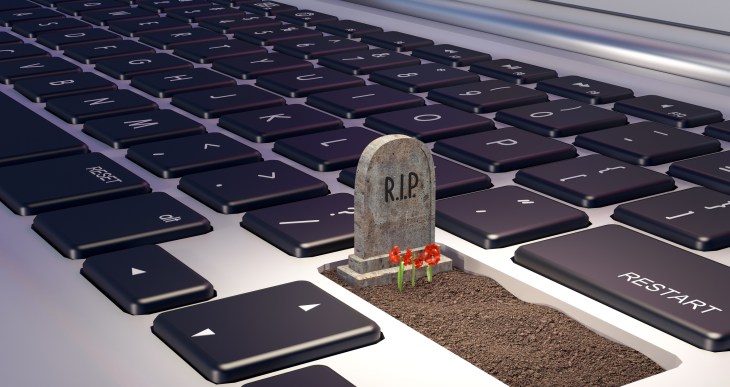Imagine your family member or friend gets rich from crypto and passes away. Yes, you’d be grieving, but you may also wonder what happens to their assets. And if they’ve left you any, the question then becomes: How are you supposed to access them?
These are questions that anyone with cryptocurrency holdings should consider, even at a young age, according to Jaime Herren, an attorney at Holland & Knight.
As the crypto industry matures, one consideration often left ignored is estate planning for your assets when you pass. Given that a lot of crypto assets are held in both hot and cold wallets and guarded by private keys (among other security elements), these funds could be virtually lost forever without a plan in place.
“The call to action is to do it,” Herren said. “Don’t think you’re too young to put a plan in place for your assets.” (Of course, this advice also applies to people with traditional assets.)
Herren, who manages complex assets, technology, digital assets and intellectual property for individuals, says in general, most clients looking for estate plans are older. “The only people under 40 who do it are ones who have a baby. Sometimes the first kid triggers people to want to take care of them or leave things to them. But no one [else] thinks about it until mortality starts ticking past 55 or 60 years old,” she said.
But the narrative might be changing. Over the past three years, there has been a 63% rise in adults between the ages of 18 and 34 laying out plans for their estate, according to Caring.com’s 2023 Wills and Estate Planning study.
It’s important to note, however, that this applies to general estate planning and not planning around crypto assets.
Wealthy individuals who have over $10 million in crypto assets should update their estate plans every six months, Herren said. “Blockchain asset owners move assets a lot, so they need to update their estate plans to reflect that.”
A quick Google search for “crypto-based will” serves up some articles on how to get crypto included in your will but yields no results for any services specializing in the field.
“For wills and trusts, you can get a good plan for about $2,000. It’d be comprehensive and take care of everything,” Herren said. “But you want to find an attorney who can talk about blockchain assets. If they can’t, keep looking and find one who does so you can get the right person and address it properly.”
There are a number of ways to guarantee that crypto assets are passed on to fiduciaries, but it depends on how your assets are held, Herren said. For example, if you have a cold storage wallet like a ledger, it comes with a private key, which is an alphanumeric code that gives holders access to a specific wallet.
“Cold storage is so secure, but if you die, it’s all lost,” Herren said. “If you have substantial assets, you want to charge your key [battery] and divide it up into three pieces and put each piece in a different place with a different person,” she added. For example, one in a deposit box, another with a fiduciary and one with yourself (that you could share with someone close), so you would need all three keys to do something.
If you have a hot wallet, which usually is stored online and requires a username and password, it’s best to keep that information in a safe place and available in a will. “Crypto assets are usually on your smartphones, so you’re going to want to have a will or trust in place that explains you have a wallet like Coinbase or Metamask, and what you need to do to access the wallet,” Herren said.
What about NFTs? Herren said they don’t differ from crypto assets in terms of estate plans, but there might be some questions surrounding what to do with them. “NFTs could be considered art or collectibles, so the tax implications might be different,” she said.
The value of NFTs also might vary according to who inherits digital collectibles. For example, if I owned a Bored Ape Yacht Club NFT (I don’t), I’d probably leave that to my parents because of how high-value they are right now in both crypto and fiat terms. But if I had a collection of lower-value NFTs, I’d probably leave them to a friend or relative who understands NFTs and would enjoy them.
If there isn’t a plan in place, crypto assets — even if they are recoverable — are subject to state laws, which vary. Typically, spouses would be the primary beneficiary, but if you don’t have a spouse, assets would be split among children, parents or next of kin, Herren said.
But 38 states operate under common law policies for inheritance, which means spouses in those states aren’t automatically guaranteed assets even through marriage. Many states will still give surviving spouses the right to claim some of the deceased’s estate.
“The laws are starting to adjust and catch up to these novel assets, but a lot of them haven’t yet been tested in a court,” Mike Christy, regional vice president of advanced planning at Fidelity, wrote in a post last September. “In many ways, cryptocurrencies remain challenging from a planning perspective.”
In recent years, there hasn’t been a big uptick in people with digital assets getting estate planning services, Herren said. Over the past year or so, many more people have bought cryptocurrencies, but the FTX collapse, among other industry-disrupting events, has caused investors to back off, she added.
Last year, four crypto billionaires died within a few weeks of each other. The situation with each of their crypto assets’ postmortem remains unclear.
“It’s going to take someone big or someone famous dying and the assets being inaccessible and it’s in the news,” Herren said. “That’s when there will be an uptick that will make people do it.”
